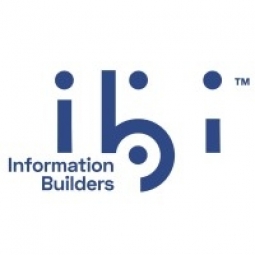Information Builders
Case Studies
Cascades Standardizes on iWay for Justin-Time Operation
Overview
 |
Cascades Standardizes on iWay for Justin-Time OperationInformation Builders |
Application Infrastructure & Middleware - Data Exchange & Integration Functional Applications - Enterprise Resource Planning Systems (ERP) | |
Paper & Pulp | |
Discrete Manufacturing Procurement | |
Manufacturing System Automation Predictive Maintenance | |
Software Design & Engineering Services System Integration | |
Operational Impact
| Managers have a more accurate, real-time view of the operation. They can track sales and production continuously, moving the business closer to a just-in-time operation. | |
| Standardizing on one general-purpose middleware environment makes it easier to develop and support new interfaces, since reusability ensures economies of scale. | |
| The new ERP system boosts efficiency by reducing in-process inventory and associated carrying costs. | |
Quantitative Benefit
| 15 plants are live with the new iWay interfaces. | |
| Once SAP is fully implemented, between 60 and 65 plants will use these new iWay interfaces. | |


